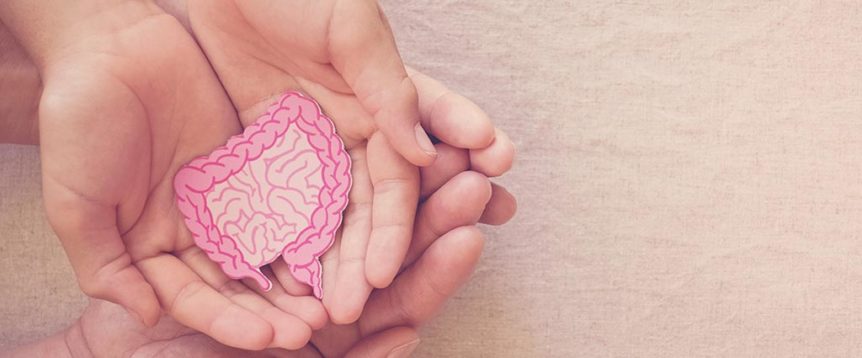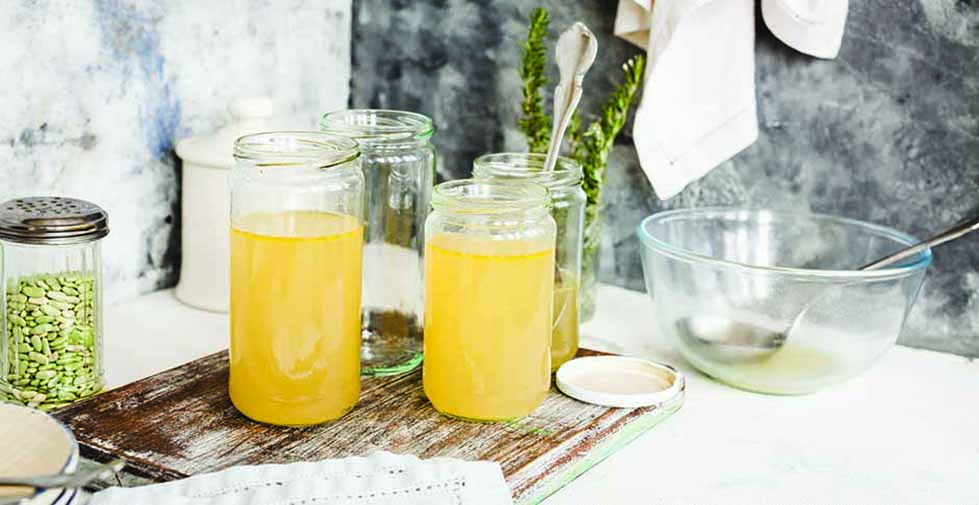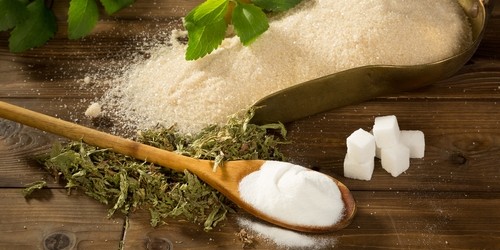By now you’ve heard the news: Healthy gut bacteria make for a healthy gut. For years, physicians have known that when “bad bacteria” overtake the “good” inside the intestines, diarrhea, irritable bowel syndrome and other digestive problems can result. It’s not uncommon for a doctor to prescribe probiotics along with antibiotics to keep gut bacteria in balance. Some physicians even go so far as to perform “fecal transplants” to treat Clostridium difficile, a particularly intractable gut infection.
But new research has revealed that the power of our internal critters doesn’t end there: The so-called microbiome—the vast universe of microorganisms that inhabit our gut and other regions of our bodies—also deeply affects our mood, cognitive function, metabolism and immune system.
“Over the past decade there has been an explosion in the scientific understanding of the bacteria in our gut and how profoundly it influences our overall biology,” says Erica Sonnenburg, Ph.D., a researcher at the Stanford University School of Medicine and coauthor of The Good Gut (Penguin, 2015). “If you have allergies, asthma, weight issues, diabetes, or even depression and anxiety, it could mean that your gut is not in an optimal state.”
The Endangered World Within

That’s all problematic, because each species of bacteria—like an instrument—plays a unique role in the symphony that is our body, emitting signature chemicals that influence our brain and immune system, help us digest food or dampen inflammation. “The more diversity you have, the more your body is able to respond to the various challenges life throws at it,” says Perlmutter.
Rather than think of ourselves as a collection of human cells, influenced by our DNA, Sonnenburg suggests people think of themselves as a collection of human and bacterial cells.
The good news: Unlike our genes, which we can’t do much about, our microbial self is extremely malleable and can be influenced quickly by what we eat and how we live. Keep it happy, and good things happen, says Perlmutter. “Keeping your gut healthy is, in my opinion, the most important thing you can do to promote health and resist disease.
Does This Bacteria Make Me Look Fat?
When a patient walks into Dr. Raphael Kellman’s integrative medicine clinic in New York City complaining that they can’t lose weight no matter how much they diet or exercise, he immediately thinks of gut bugs.
“The gut bacteria are the gatekeepers of the calories that enter our body,” says Kellman, author of The Microbiome Diet (Da Capo Lifelong, 2014). Certain species break down protein and fat, while others metabolize sugars.
One type of bacteria, Helicobacter pylori, long maligned as a cause of peptic ulcers, helps you maintain a healthy weight by regulating the production of acid (which helps us digest food) and influencing the appetite-regulating hormones ghrelin and leptin. “If you don’t have H. Pylori in your microbiome—and many of us don’t—you have more difficulty shutting off the hunger signal and turning on the fullness signal,” writes Kellman. People with elevated levels of the bacteria Firmicutes are more likely to be heavy, according to some studies, while people with more Bacteroidetes are more likely to be lean.
Kellman points to one 2013 study, published in Science, in which the gut bacteria from four sets of human twins (one lean; one obese) were transplanted into bacteria-free mice. Despite identical diets, the mice that got a transplant from an obese twin got fat; the mice that got a transplant from a lean twin stayed lean.
“There is no question: Changes in the percentages of certain bacteria can prompt the body to gain or lose its ability to maintain a healthy weight,” says Kellman, who prescribes probiotics, prebiotics and microbiome-nurturing dietary changes for people struggling with weight.
Healthy Gut, Healthy Brain and Immune System

Bacteria also release chemical messengers that “speak to the brain” via the vagus nerve, which stretches from the brain stem to the abdomen. And research shows that certain gut bacteria can sway levels of stress hormones, including cortisol, and brain chemicals, such as brain-derived neurotrophic factor (BDNF).
“Perhaps no other system in the body is more sensitive to changes in gut bacteria than the central nervous system, especially the brain,” Perlmutter says.
Studies in humans have only just begun, but numerous animal studies have shown that introducing beneficial bacteria can fend off anxiety, depression and post-traumatic stress disorder. It’s too early to broadly recommend probiotics for mental health disorders, says Perlmutter. But thus far, the research looks promising. And eating more yogurt certainly can’t hurt, he says.
Sonnenburg adds that our microbial makeup, from the day we are born, can also alter our susceptibility to immune-system-related illnesses, including seasonal allergies, eczema and dermatitis.
That’s because much of our immune cells reside in our intestine, where they are in constant dialogue with bacteria in the area. “These microbe–immune system conversations help our body discriminate between harmless foreign entities like food and harmful ones like salmonella,” she says.
And when immune-modulating cells, like T Cells, leave the gut for other parts of the body, they “remember” those conversations. “If the immune system is directed by the gut to operate on a hair trigger, autoimmune responses can result,” Sonnenburg explains.
Again, the science is young. But one 2013 study showed that babies born to moms who took probiotics, or those who took them as infants, are less likely to grow up with allergies. And some research suggests that eating fermented foods that contain probiotic bacteria, like yogurt and sauerkraut, can lessen the severity of and shorten the duration of colds and flus.
Your best bet: Don’t wait until you get sick to start nurturing your gut, says Sonnenburg. Instead, load up on prebiotic fiber and fermented foods, ditch the antibacterial soap and take antibiotics only when you absolutely have to.
Your whole body will thank you for it.
Eight Ways to Nurture Your Gut
Probiotic supplements aren’t the only way to bolster your microbiome.
- Eat fiber. “Increasing the amount of dietary fiber you consume is the number one step to improve not only gut health, but also overall health,” says researcher Erica Sonnenburg. Make sure to get enough prebiotic fiber, like chicory root, asparagus, carrots, Jerusalem artichoke, jicama, leeks, onions and whole grains. Prebiotics are food for good bacteria, and without them good bacteria won’t survive. Supplements are also available.
- Load up on fermented vegetables, like kraut and kimchi, which deliver a potent dose and a broad range of bacterial species, says Kirsten Shockey, coauthor of Fermented Vegetables (Storey, 2014). Chop up some kimchi in sour cream for a bacteria-fueled dip, or add kraut to your breakfast omelet.
- Drink brine, the leftover juice from fermenting vegetables. Shockey uses it in place of vinegar to make salad dressing.
- Enjoy fermented milks, like yogurt and kefir.
- Look for raw, properly aged artisan cheeses.
- Avoid antibacterial soaps, meat made with antibiotics and antibiotic medicine.
- Get a dog. Pets are a wonderful way to expose yourself to good bacteria, says Sonnenburg.
- Load up on prebiotics.
How to Choose a Probiotic

- For general health, look for a broad-spectrum brand with at least 10 different strains, including Lactobacillus plantarum, Lactobacillus acidophilus, Lactobacillus brevis, Bifidobacterium lactis and Bifidobacterium longum.
- For weight loss, try Lactobacillus gasseri and Lactobacillus rhamnosus.
- For mood issues, opt for Lactobacillus helveticus and Bifidobacterium longum.
- Pick a brand you know and trust.
- Buy only in small batches. Potency declines on the shelf, even if it’s refrigerated.
- Take it on an empty stomach.
- Look for a product with 10 billion to 50 billion colony-forming units (CFUs) per capsule.










Comments